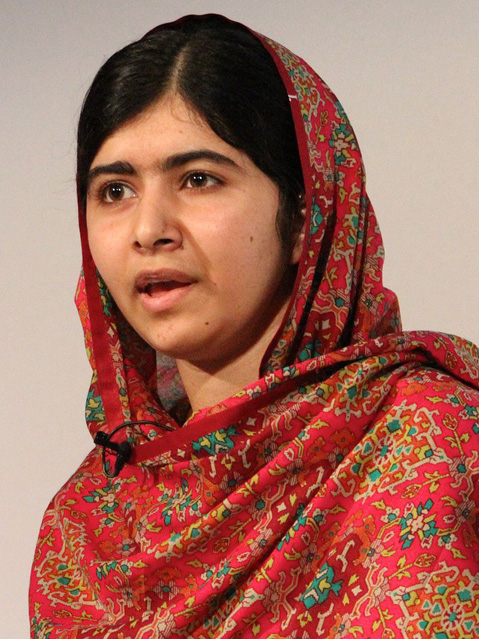Malala Yousafzai: Education Ambassador
She Survived Taliban Assassination and Now Speaks for Students
Malala Yousafzai sold out theaters last weekend in Santa Barbara during her only appearance in Southern California. She spoke live at the Arlington Theatre and a video stream was simulcast to New Victoria Theater and UCSB Campbell Hall. The event served as a platform for Yousafzai to champion children’s educational rights, an undertaking that has made her the youngest-ever Nobel Peace Laureate and the target of assassination attempts. “It was my voice that was my weapon,” Yousafzai said. “I’m not just one girl, not just one voice.”
Yousafzai was riding a bus home in Pakistan’s Swat Valley in 2012 when a member of the Taliban boarded the bus and asked for her by name. After being identified by the assassin, Yousafzai was shot; the bullet struck her in the forehead and traveled underneath her skin before it plunged into her shoulder. After the attack, Yousafzai was flown to Birmingham, England to undergo treatment and, within six months, had recovered enough to return to school. Education should be the number one priority of children, according to Yousafzai, who described high school dropouts as “really sad.”
Yousafzai compared the United States’ free, high quality education to the schools in countries such as India and Pakistan, where a single teacher can teach up to 100 high-school-aged students. “It just looks like a building and a teacher teaching you,” Yousafzai said, but “I was looking for a deeper meaning.” According to Yousafzai, religious extremism is partly caused by lack of education and a lack of questioning that has been “denied in many countries.”
Translations of the Holy Quran are also not available in many parts the Islamic world, according to Yousafzai, where impressionable youth are often uneducated and seeking employment. While some Islamic scholars have unjustly taken advantage of the region’s lawlessness, Islam is not to blame. “Blaming everything on Islam does not give a solution to the problems we are facing,” said Yousafzai, who asked that politicians “think of their own children as victims in these wars.”
Ziauddin Yousafzai named his daughter after an Afghan folk hero who was known for her bravery in the early Anglo-Afghan wars. “Malalai of Maiwand”, who like Malala is ethnically Pashtun, rallied Afghan troops against the occupying British and led them to victory. But before Malalai of Maiwand could see the outcome of her efforts, she was killed in battle, securing her place in history.

The documentary He Named Me Malala is set to debut this fall in theaters across the country and will focus on Malala Yousafzai’s life and struggle for children across the globe. While the crowd focused on her father, many people asked him for advice in raising children. “Don’t ask me what I did for my daughter,” Ziauddin Yousafzi said. “Ask what I didn’t do. I didn’t clip her wings.”



